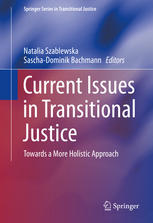

Most ebook files are in PDF format, so you can easily read them using various software such as Foxit Reader or directly on the Google Chrome browser.
Some ebook files are released by publishers in other formats such as .awz, .mobi, .epub, .fb2, etc. You may need to install specific software to read these formats on mobile/PC, such as Calibre.
Please read the tutorial at this link: https://ebookbell.com/faq
We offer FREE conversion to the popular formats you request; however, this may take some time. Therefore, right after payment, please email us, and we will try to provide the service as quickly as possible.
For some exceptional file formats or broken links (if any), please refrain from opening any disputes. Instead, email us first, and we will try to assist within a maximum of 6 hours.
EbookBell Team

4.0
66 reviewsThis volume is an inter-disciplinary scholarly resource bringing together contributions from writers, experienced academics and practitioners working in fields such as human rights, humanitarian law, public policy, psychology, cultural and peace studies, and earth jurisprudence. This collection of essays presents the most up to date knowledge and status of the field of transitional justice, and also highlights the emerging debates in this area, which are often overseen and underdeveloped in the literature. The volume provides a wide coverage of the arguments relating to controversial issues emanating from different regions of the world. The book is divided into four parts which groups different aspects of the problems and issues facing transitional justice as a field, and its processes and mechanisms more specifically. Part I concentrates on the traditional means and methods of dealing with past gross abuses of power and political violence. In this section, the authors also expand and often challenge the ways that these processes and mechanisms are conceptualised and introduced. Part II provides a forum for the contributors to share their first hand experiences of how traditional and customary mechanisms of achieving justice can be effectively utilised. Part III includes a collection of essays which challenges existing transitional justice models and provides new lenses to examine the formal and traditional processes and mechanisms. It aims to expose insufficiencies and some of the inherent practical and jurisprudential problems facing the field. Finally, Part IV, looks to the future by examining what remedies can be available today for abuses of rights of the future generations and those who have no standing to claim their rights, such as the environment.